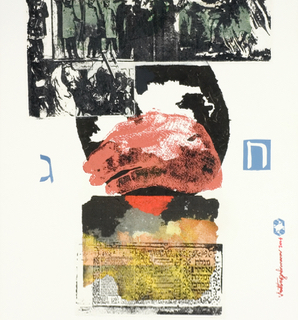Clarice Lispector and the latent writing of the disaster
DOI:
https://doi.org/10.17851/1982-3053.11.21.85-105Keywords:
Clarice Lispector, Shoah, Latency/StimmungAbstract
The following article interprets the representation of the Shoah in terms of a latent presence in two novels by Clarice Lispector, “The Besieged City” and “The Hour of the Star”, using the concepts of latency and Stimmung, elaborated by Hans Ulrich Gumbrecht in the context of the Western culture after 1945.
Downloads
References
AIZENBERG, Edna. Besieged in Berne: Clarice Lispector and the Murmur of Catastrophe. In: ______. On the Edge of the Holocaust: The Shoah in Latin American Literature and Culture. Waltham, MA: Brandeis, 2015. p. 25-51.
AMÉRY, Jean. Más allá de la culpa y de la expiación: tentativas de superación de una víctima de la violencia. Trad. Enrique Ocaña. Valencia: Editorial Pre-Textos, 2004.
DIANTONIO, Robert. The Brazilianization of the Yiddishkeit Tradition. Latin American Literary Review, v. 17, n. 34, p. 40-51, 1989.
DIANTONIO, Robert. Resonances of the Yiddishkeit Tradition in the Contemporary Brazilian Narrative. In: GLICKMANN, Nora (Ed.). Tradition and Innovation. New York: State University of New York Press, 1993. p. 45-60.
GOTLIB, Nádia Battella. Macabéa y las mil puntas de una estrella. In: MONTÓN, Patricia Trujillo (Ed.). Literatura: teoría, historia, crítica. V. 16, n. 1. Bogotá: UNAL, 2014. p. 295-325.
GOTLIB, Nádia Battella. Clarice: uma vida que se conta. São Paulo: Ática, 1995.
GUMBRECHT, Hans Ulrich. Nach 1945. Latenz als Ursprung der Gegenwart. Trad. Frank Born. Suhrkamp Verlag, 2012.
GUMBRECHT, Hans Ulrich. Was kann „Weltliteratur“ heute sein? Frankfurter Allgemeine. 19 nov. 2016. Blogs. Disponível em: <http://blogs.faz.net/digital/2016/11/19/was-kann-weltliteratur-heute-sein-1122/>. Acesso em: 5 nov. 2017.
KLENGEL, Susanne. Agendas latino-americanas en la segunda posguerra y en la literatura contemporánea sobre la memoria del Holocausto. Lecciones Doctorales: n. 20. Medellín: Universidad de Antióquia, 2016.
LISPECTOR, Clarice. Correspondências. Teresa Montero (Org.). Rio de Janeiro: Rocco, 2002.
LISPECTOR, Clarice. Minhas queridas. Teresa Montero (Org.). Rio de Janeiro: Rocco, 2007.
LISPECTOR, Clarice. A hora da estrela. Rio de Janeiro: Francisco Alves, 1997 [1977].
LISPECTOR, Clarice. A cidade sitiada. Rio de Janeiro: Rocco, 1998 [1949].
RÜHLE, Ulrich. Komponistenlexikon für junge Leute. Mainz: Schott, 2007.
SCLIAR, Moacyr. Memórias judaicas. In: SLAVUTZKY, Abrão (Org.). A paixão de ser. Depoimentos e ensaios sobre a identidade judaica. Porto Alegre: Artes e Ofícios, 1998. p. 75-85.
VIEIRA, Nelson H. A expressão judaica na obra de Clarice Lispector. Remate de Males. Campinas, v. 9, p. 207-209, 1989.
WALDMAN, Berta. O estrangeiro em Clarice Lispector: uma leitura de A hora da estrela. Judaica Latinoamericana. Estudios Histórico-Sociales: t. IV. Jerusalem: Editorial Universitária Magnes, 2001. p. 379-390.
WALDMAN, Berta. Por linhas tortas: o judaísmo em Clarice Lispector. Arquivo Maaravi: Revista Digital de Estudos Judaicos da UFMG. Belo Horizonte, v. 5, n. 8, mar. 2011. Disponível em: <http://www.periodicos.letras.ufmg.br/index.php/maaravi/article/view/1780>. Acesso em: 9 set. 2017.
Downloads
Published
How to Cite
Issue
Section
License
Os direitos autorais pertencem exclusivamente aos autores. Os direitos de licenciamento utilizados pelo periódico é a licença Creative Commons Attribution 4.0 (CC BY 4.0): são permitidos o compartilhamento (cópia e distribuição do material em qualquer meio ou formato) e adaptação (remix, transformação e criação de material a partir do conteúdo assim licenciado para quaisquer fins, inclusive comerciais.






